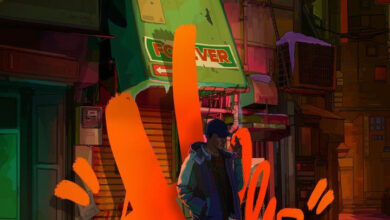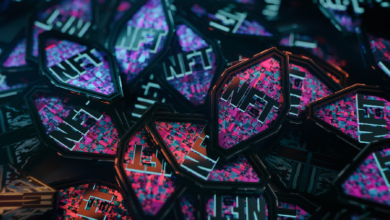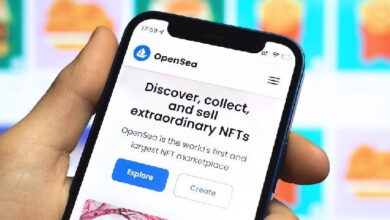Magic Eden Warns Users Its iOS and Android Apps No Longer Working

NFT
This Wednesday, the Solana-based NFT marketplace Magic Eden announced that its iOS and Android apps are no longer functional. According to the platform, it is “hitting pause” on its smartphone apps for at least a few months.
Magic Eden’s Smartphone Apps Will Not Work for At Least Several Months
This Wednesday, the NFT marketplace Magic Eden announced via Twitter that its smartphone apps are no longer functional. According to the marketplace, the apps will remain unusable for at least several months. Magic Eden, however, also specified that its platform would remain reachable via mobile phone either by using a web browser, or Phantom wallet’s app.
While the company gave no specific reason for discontinuing its smartphone offering, it stated it will be focusing on improving its other areas. Magic Eden specifically mentioned improvements in its user interface, as well as work on future Magic Eden Rewards and cross-chain as areas of focus for the coming months.
Also on Wednesday, Magic Eden introduced royalties for item-level offers. Full creator royalties will now be factored into the prices of the “enforced collections” and users will be able to select if they wish to pay full, partial, or no royalties on “non-enforced collections. After initially rejecting the idea, Magic Eden introduced royalty-enforcing tools in early December.
Despite Setbacks in 2022, NFTs Have a Strong Start in 2023
While the entire cryptocurrency sector had a rough 2022 due to a number of calamities, scandals, and the overall effects of record-breaking inflation, NFTs have arguably been hit particularly hard. Not only has the interest in non-fungible tokens reached zero during the summer, but the industry has also been the target of increased regulatory pressure with the announcement of the SEC probe into Yuga Labs. Furthermore, Magic Eden is not the only NFT business to have reduced functionality on smartphones.
Last December, Coinbase’s wallet on iOS suffered a loss of functionality when Apple blocked one of its updates. At the time, the cryptocurrency exchange revealed that the tech giant removed the ability of users to send and receive non-fungible tokens and explained it was due to Apple’s new policies intended to protect its profits.
The beginning of 2023, however, saw a marked change for both non-fungible tokens, and the broader cryptocurrency industry which went through a significant rally in January. The heightened interest in NFTs has partially been boosted by the rising popularity of aggregators and the hype surrounding the recent release of Blur’s long-awaited BLUR token.
The year also saw the introduction of Ordinals—NFTs on the Bitcoin blockchain. While these non-fungible tokens caused a somewhat divisive discussion within the community, they got a significant boost earlier this week when Yuga Labs, the creators of the Bored Ape Yacht Club, unveiled their first-ever Bitcoin NFT collection.





